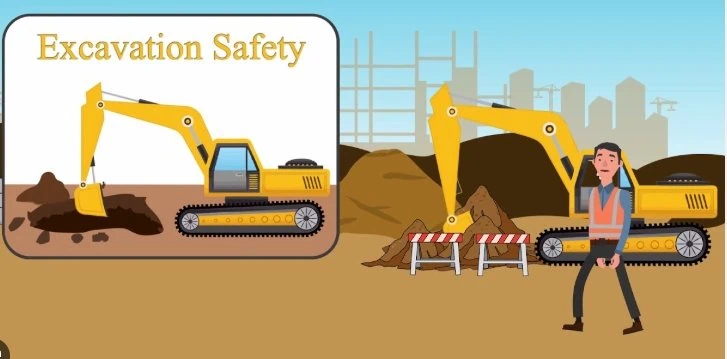Purchasing a used excavator can save you a lot of money, but it also comes with risks, particularly when it comes to low-quality or fake machines. How do you ensure that you aren’t buying a machine that will cost you more in repairs than it’s worth? In this article, you will learn essential tips and methods to identify fake or low-quality used excavators and make an informed purchase.
To avoid buying a fake or low-quality used excavator, check for signs of damage, verify the brand and serial numbers, review the machine’s operational performance, and ensure you receive all necessary documentation.

Keep reading to learn practical strategies for spotting fake or low-quality excavators and how much is the cost of used excavator.
Inspecting the Physical Condition of the Excavator
The physical condition of a used excavator can tell you a lot about its history and its future reliability. When you inspect the machine, look for signs of excessive wear, parts that have been replaced with non-original items, and any visible damage that could signal underlying issues.
Examine the bucket, tracks, and undercarriage for signs of wear and tear. Be cautious if you notice repair welds or non-original parts, as these can indicate past damage or misuse.
To ensure that the used excavator you’re considering is in good shape, start by closely examining the bucket and undercarriage. These areas are crucial as they bear the most weight and stress during operation. Look for deep scratches, dents, or excessive wear that could suggest the machine was used for heavy-duty tasks it wasn’t designed for. If the tracks are significantly worn, this could be a sign that the excavator has seen more work than it can handle.

Also, check the boom and arm for any welding repairs or structural modifications. If these parts have been welded or modified, it may suggest that the machine has been involved in a serious accident or sustained substantial damage. Pay attention to any parts that don’t seem original, as these could be signs that the excavator has been tampered with to cover up issues.
Testing the Excavator’s Operational Performance
You can’t determine the quality of a used excavator just by looking at it. It’s essential to test its operation to ensure that everything works as it should, and to spot any issues that might not be visible to the naked eye.
Perform a full operational test. Start the engine, check for any unusual noises, and operate the hydraulic systems, boom, and bucket to ensure smooth movement.
When you test the used excavator, ensure the engine starts smoothly and idles without any issues. Listen for any strange noises, such as knocking or grinding sounds, which could be a sign of internal engine problems. While the engine is running, test the hydraulic system by operating the boom, arm, and bucket. They should move smoothly and without hesitation. If there is any lag or jerky motion, this could indicate problems with the hydraulic pump or valves.
Also, check the control levers for responsiveness. A machine that responds slowly or erratically may have underlying issues with the electrical or hydraulic systems, both of which can be costly to repair. Finally, pay attention to the undercarriage during operation. It should move smoothly without excessive vibration, and the tracks should remain straight.
Verifying the Brand and Serial Numbers
Fakes or low-quality machines often come with counterfeit or altered brand logos and serial numbers. Verifying the authenticity of the excavator’s brand and serial number is one of the most reliable ways to spot a fake or substandard machine.
Check the nameplate for the brand and serial number, and verify them with the manufacturer’s database. If there is any inconsistency or tampering, the machine may be fake or tampered with.
Each legitimate excavator has a nameplate, typically located on the chassis, which includes critical details such as the brand, model, and serial number. The serial number is the key to identifying whether the machine is genuine or counterfeit. If the serial number seems off, or if the nameplate has been tampered with or altered, this is a red flag.
You should contact the manufacturer directly or visit their official website to verify whether the excavator’s serial number is valid. Be sure to cross-check this information against the manufacturer’s database to confirm the model, year of manufacture, and any relevant service records. Additionally, check the machine for other signs of authenticity, such as logos and stamps. If the brand’s logo looks poorly applied or inconsistent with what is expected from the manufacturer, it could indicate that the machine is not genuine.
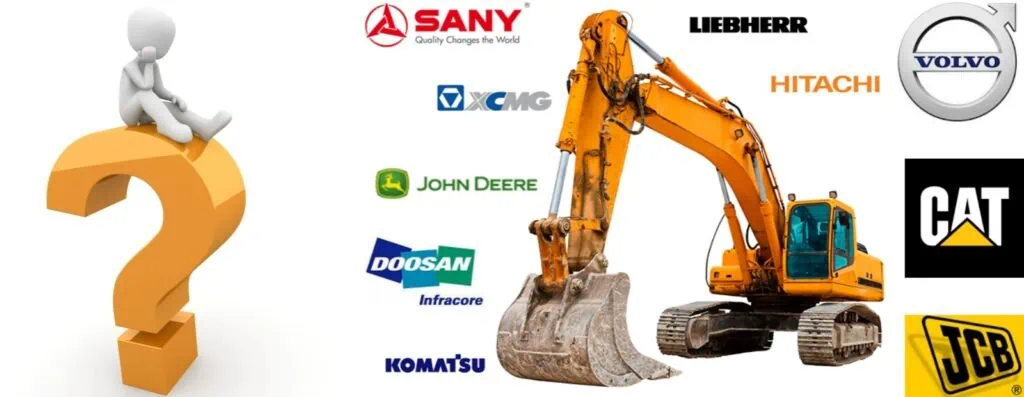
Reviewing Documentation and Certification
Proper documentation is essential when purchasing a used excavator. It ensures the machine complies with legal and safety standards, and provides insight into its history and condition. If the seller cannot provide the necessary documentation, proceed with caution.
Request the machine’s service history, certification, and inspection records. These documents offer valuable information about the machine’s maintenance and condition, and can help you avoid potential problems.
Request a copy of the service history and inspection reports from the seller. The service history provides insight into the machine’s past repairs, maintenance, and any major issues it may have had. A thorough history can help you assess whether the machine has been properly maintained or if it has been involved in frequent breakdowns. If the seller cannot provide a service history, or if it appears incomplete or inconsistent, it may indicate that the excavator has been poorly maintained or that the seller is hiding something.
Additionally, request the machine’s certification documents. These documents may include certifications of authenticity, environmental standards compliance, or inspection records from third-party evaluators. Without proper certification, you may risk purchasing a machine that doesn’t meet local regulations or safety standards.
Getting a Professional Inspection
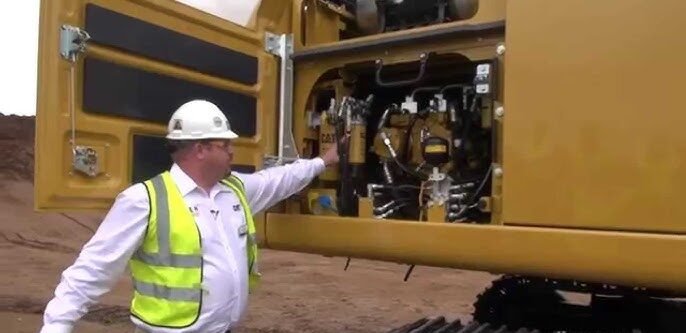
Even after conducting your own inspection, it’s always a good idea to hire a professional to thoroughly evaluate the excavator. A third-party inspector can offer an unbiased assessment and identify potential issues that you might have missed.
Hire a third-party inspection service to perform a comprehensive evaluation of the excavator’s condition. They can uncover hidden issues and help you make an informed decision.
A professional inspection can save you from costly mistakes. These inspectors have the expertise to identify subtle issues that might not be visible to an untrained eye. They will assess the machine’s engine, hydraulic system, undercarriage, and structure. Some inspectors also use advanced diagnostic tools to check the condition of the engine, hydraulic pump, and other critical systems.
If there are any underlying issues with the machine, a professional inspector will be able to spot them before you make a purchase. This service may come at an additional cost, but it’s an investment that can save you money in the long run by ensuring that you don’t buy a faulty machine. The inspection report can also provide leverage in negotiations, as you can use any discovered issues as grounds for requesting a lower price or additional repairs.
Understanding the Total Cost of used excavator
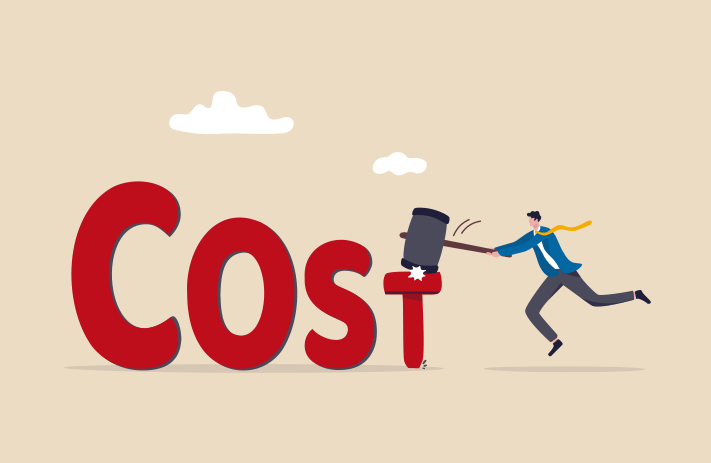
When buying a used excavator, the initial price is just one part of the total cost. Several other factors, including shipping, import duties, maintenance, and certifications, can add significantly to the overall expense.
Apart from the purchase price, consider additional costs like shipping, import duties, maintenance, certification, and post-sale support. These can significantly affect your investment.
Before finalizing the purchase, make sure you’re aware of all the additional costs involved. Here are the main factors to consider:
Initial Purchase Price
The upfront cost of a used excavator will vary depending on the brand, model, and age. Some brands, like CAT, Komatsu, and Sany, are known for their reliability and tend to be priced higher, but they offer longer lifespans and better resale value. It’s important to research the market value of the machine you’re considering to ensure you aren’t overpaying.
Shipping and Handling Fee
Shipping costs can add a significant amount to the price, especially if the excavator is being imported from abroad. These costs depend on factors like the distance, shipping method, and whether the machine requires special handling. Be sure to get a shipping quote before proceeding with the purchase.

Customs and Import Taxes
Import taxes and customs duties are another major consideration when buying a used excavator. These fees can vary depending on the country of origin and the value of the machine. In some cases, the taxes can add a substantial amount to the total cost, so it’s important to factor this into your budget.
Repair and Maintenance Costs
Even if the machine is in good condition at the time of purchase, you may need to budget for repairs and maintenance, particularly if it’s an older model. Common repairs include hydraulic system maintenance, engine servicing, and track replacement. Be sure to get a clear understanding of the machine’s maintenance history and any potential repairs that might be needed soon after purchase.
Certification and Compliance Fees
Some regions require that used excavators meet certain safety, emissions, or operational standards before they can be used. If this is the case in your country, ensure that the excavator has the necessary certifications. There may also be costs for re-certification or inspections if the machine doesn’t meet the required standards.
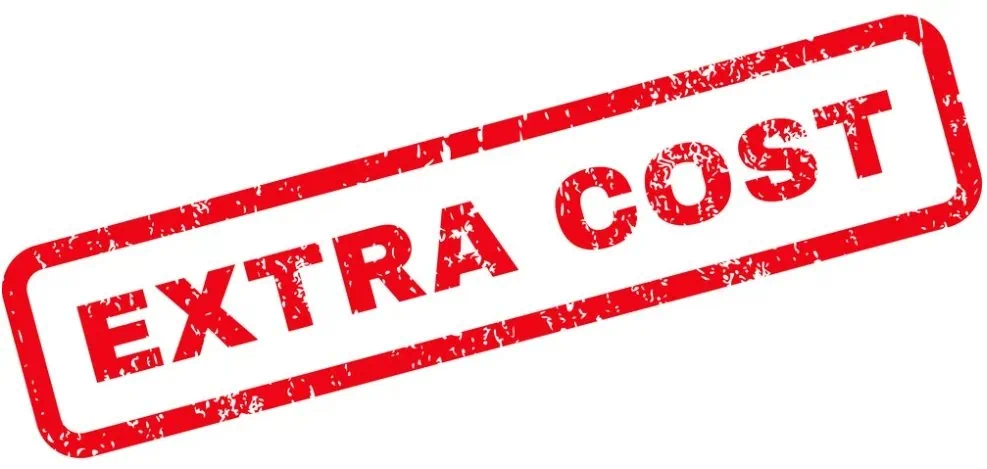
Post-Sale Support and Warranty
Post-sale support is another cost factor. Some sellers offer limited warranties for used excavators, but these may not cover all parts or issues. Be sure to ask about the warranty details and consider purchasing extended coverage if available. Additionally, inquire about the availability of spare parts and support services in case repairs are needed.
Total Purchase Cost Example for a Used CAT320D Excavator
Let’s put these numbers together to estimate the total cost of purchasing a used CAT320D excavator, factoring in the initial price, additional costs, and unexpected expenses.

Initial Purchase Price:
Average price of a used CAT320D: $55,000
Shipping and Handling Fees:
Estimated shipping cost from China to South America: $5,000
Customs and Import Taxes:
Assuming a 15% import duty and 12% VAT on the total cost:
Import duties and taxes (on $55,000 + $5,000 shipping): $9,000
Repair and Maintenance Costs:
Estimated initial repairs and routine maintenance: $3,000
Certification and Compliance Fees:
Retrofitting for emissions standards (if required): $7,000
Post-Sale Support and Warranty:
Extended warranty and support: $3,000
Total Estimated Cost
Total Purchase Cost: $55,000 (initial price) + $5,000 (shipping) + $9,000 (customs and taxes) + $3,000 (repairs and maintenance) + $7,000 (certification fees) + $3,000 (warranty) = $82,000
This example shows that while the initial purchase price of a used CAT320D may seem reasonable, the total cost after factoring in shipping, taxes, repairs, and compliance costs can add up to a significant amount. Always be sure to budget for these additional expenses before committing to a purchase.

Краткое содержание
Identifying fake or low-quality used excavators requires careful attention to detail. From checking the physical condition to verifying documentation and understanding additional costs, it’s important to approach the purchase with a clear strategy. By following the steps outlined in this guide, you can avoid costly mistakes and ensure that the machine you buy will serve you well for years to come. we are leading supplier of used excavator, please contact me for more information.


